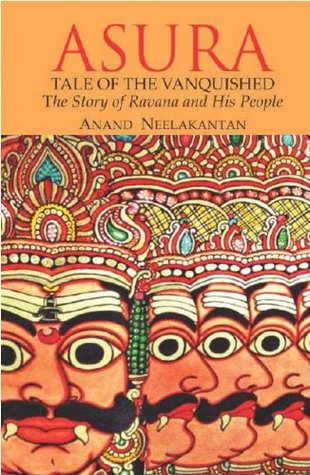More on this book
Community
Kindle Notes & Highlights
‘What sort of a demon was I becoming? Why was I treating my people like this? Why was I getting angry even at Maricha, when he did not show respect?’ Suddenly, I wanted to run and hug him and say I was sorry. But something held me back. I increased my pace and entered the palace gate.
Action is what matters rather than words.
I was reading this book thinking I will get a neutral perspective or rather I will get answer to all Ravan's actions. That is much in future for now.
Just a note though, even I might feel guilty/happy about doing something slightly wrong but I won't keep repeating it. So far there is a sound in Ravana which wants to be correct against these small wrong actions/desires instead of repeating those I would just appretiate either him finally following that voice or completely supress it to follow the path of the desires. Simply thinking about how something is bad while doing it again and again is annoying.
I pushed Maricha aside and saw him fall backwards and hit his head on the floor, from the corner of my eye. I could not have cared less. I grabbed my mother by her hair and dragged her out of the hall. The sight of Prahastha standing with his hands folded behind his back, staring at me, stopped me dead. The grip on my mother loosened and she scrambled up. The horror of the crime I had committed hit me like a thunderbolt. I was both shocked and shattered, but in some corner of my mind, satisfied and happy.
Anybody could have become what he was now. He was nothing more than us. What did Ravana have that I did not possess? Was it the quiet confidence that he was born to rule? Was it plain luck, or because he was so ruthless and clever? If ruthlessness was the key, then Rudraka possessed it more than anyone else. If strategic and long-term thinking was the answer, no one could match Prahastha. If it was bravery, then there were scores of brave Asuras around who could have made it big. If charisma was the most important factor, then why didn’t Vidyutjihva succeed? If cleverness was important, then
...more
That I was thinking these thoughts showed I was never to be given a second chance. They were utopian dreams – vestiges of my own lower middle class wishes, long-forgotten titbits of the shattered fantasies of my youth. Power would corrupt me again as it had done before. Ideals would die and be buried like they always had been.
The winner of the battle would take everything – fame, money, power. He would be the truth, for whosoever wins, would be called the truth. Bards would sing paeans about the victor. As time passed, legends would grow. The victor would become the paragon of virtue, the best among men. Like every man, he too would commit good or bad deeds in life. But as is the nature of the world, the good deeds of the victor would be exaggerated and the bad deeds obliterated from memory. And if the doings of the victor could not be justified by the prevailing moral codes of society, he would be elevated to
...more
How he would cling to my tattered mundu, scared of the demons; how he would laugh at the pranks of the animals that talked with Gods and men. I recalled the joy and feeling of contentment that had not depended on a fat purse and a mansion, but on little things that wove their magic. Yet I could not recall his little face. The face I saw was the one I had seen on his funeral pyre, mauled by the claws of fate, smashed on the hard rock of racial hatred and crushed under the weight of prejudice. I wanted a drink. The pain was too great to bear.
The earth had its claim on every living body. Our life was loaned from the earth. A borrowed life. And at any time, earth could call back its loan.
Ravana gave the Asuras dignity and self-belief, instilled confidence and pride in our ancient culture and took our civilization to new heights of glory. Yes, he may have been a tyrant. He had destroyed the democratic and egalitarian society of the Asuras and made it into a mean fighting machine. Yes, he wallowed in luxury and did whatever he pleased. The society he had created was not perfect. The majority of us remained poor. Yet we knew that hard work and luck could make us rich and powerful. There were no congenital, privileged castes such as the Brahmins were among the Devas. Despite our
...more
It took me almost three months to understand that I belonged to the caste of washermen, which was theoretically lower than goldsmiths, carpenters, etc, but miles higher than travelling minstrels, woodcutters, potters, and the rest. I was not permitted to walk on the road when those belonging to higher castes, decided to use the road. But I, in turn, had the right to kick a potter if he dared to cross my path. My purity was besmirched if I touched a woodcutter, but, in turn, if I ever touched a carpenter, I could cause impurity. None of these castes belonging to the lowest rung, could walk on
...more


